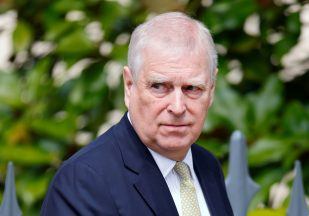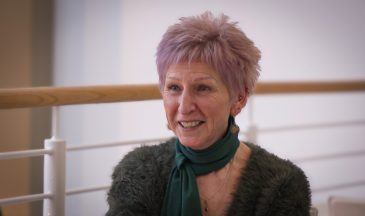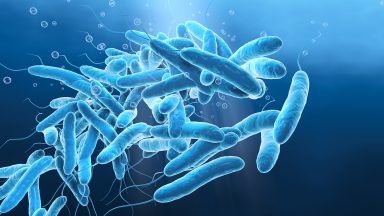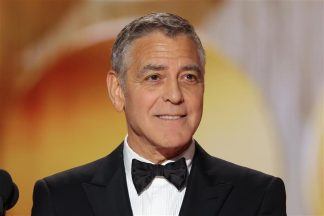Intermittent fasting (IF) has become a popular lifestyle trend in recent years – focusing on when you eat rather than what you eat.
The approach involves alternating cycles of eating and going without food, with variations including the 5:2 or time-restricted fasting.
Scientists argue it can deliver a number of benefits beyond weight loss, including DNA repair, improved brain function and protection against diseases such as cancer.
Rishi Sunak, who has become known for his rigorous wellness regime, made headlines after it emerged he fasts for 36 hours a week.
The PM, who is a practicing Hindu, has spoken previously about fasting, which is a custom in his religion. But it’s the first time the full extent has been revealed; he consumes nothing but black coffee, tea and water between 5pm every Sunday until 5am on Tuesday morning.
Sunak told interviewers this was “an important discipline” for him which allows him to “detox” after the weekend, also meaning he could “indulge in sugary treats” for the rest of the week.
Eating’s out to help out? Experts argue fasting could boost your health
There is a growing body of research that suggests fasting could be key to tackling a number of health issues.
Professor Adam Collins is an associate professor of nutrition at the University of Surrey and specialises in metabolic health.
He said: “[Rishi Sunak] can’t afford to lose weight, there’s hardly anything of him. But he’s really into this ‘Silicon Valley’ mindset of improving performance, discipline and mental acuity; things that might be related to longevity.
“It’s extreme, but people may find that easier. A 5:2 essentially is 36 hours. It might be easier to not eat anything, it just gets rid of any doubt.
“Depending on your activity and health, you may need something a bit more nuanced rather than the ‘all or nothing approach.”
Professor Collins said there is evidence that intermittent fasting can help improve insulin sensitivity, alleviate symptoms of pre-diabetes and even reverse features of type two diabetes among other health effects.
He explained that a Western diet of three meals a day sees people being mostly in a “fed state” – scientifically the post-prandial and post-absorptive state – most of the day, except for a few hours after they wake up.
Humans have evolved to go without food for extended periods of time, thanks to our prehistoric ancestors. The idea is that intermittent fasting could help the body better cope with the pressures of a modern diet.
Fasting can help introduce ketosis, a metabolic state that occurs when your body burns fat for energy instead of glucose.

“Your body is designed for feast or famine,” he said. “The whole premise is allowing your body to be in a fasted state, which is quite important from a metabolic point of view.
“Cardiovascular and metabolic risks, the increased risk of cardiovascular disease, developing insulin resistant type 2 diabetes, how you store fat around the body – it’s all interconnected.
“Switching between the use of certain fuels is actually quite impactful in terms of health. When you don’t have carbs coming in, it switches to burning its back-up, which is fat.
“Most people don’t eat the same thing every day. Sometimes you eat more carbs and fat than you expend and other days less.
“It’s about rolling with the punches and how your body is maintaining homeostasis.”
There is also scientific evidence that fasting can bring cellular benefits in a process called autophagy, which Professor Collins described as “housekeeping”.
When in a fasted state, the cell begins breaking down the components of the cell and reforming or recycling those old ‘building blocks’.
“We know from animal models from decades ago that if you restrict energy in animals, they live longer,” he said.
“The cells are forcing themselves to become more efficient and improving the ability of the cells to live longer, as they don’t have the luxury of building more.
“The logic is, if you’re replete with energy all the time, you’re not allowing cells to undergo spring cleaning.
“It could potentially help trigger things like DNA repair or start sacrificing cancer cells. All these things are theoretically sound in rodent models. “
He added: “You shouldn’t discount the fact that this process is, in a sense, helping people become more metabolically resilient, reducing their insulin resistance and helping them maintain a certain weight. It comes full circle.”
‘It’s not for everyone’
Naveed Sattar is a professor of metabolic medicine from the University of Glasgow, specialising in heart disease and diabetes research.
He said extreme fasting should be approached with a healthy dose of scepticism and that time-restricted eating may be more beneficial for dieters.
The effects of fasting include greater hunger, headaches, fatigue and mood issues.
“It’s not for everyone; the 36 hour fast is an extreme version of the 5:2,” he said.
“You don’t see it often. It seems to be highly motivated people who have a very strong reserve or willpower to be able to do it.
“If people out there are finding it difficult to cut their portion size and improve the quality of their diet, but find a period of food abstinence helps, it could be useful.
“But as soon as as you put on weight and stop doing it, the benefits are lost pretty quickly.”
Professor Sattar said that while fasting could help processes such as autophagy and reduce the risk of disease, more long-term research would be needed.
“There haven’t been any long-term trials with a control element on the additional health benefits of intermittent fasting in humans beyond the total weight loss. Everything else is speculative.
“I would be surprised if all the benefits were not simply linked to weight loss. People who maintain a lower weight tend to live longer, and are less prone to diabetes and brain disfunction.
“It should only be used as a tool to cut your calorie intake if that’s what you want to achieve, but I don’t think it will ever become mainstream.”
Health experts warned fasting is not recommended for a number of groups including people with certain health conditions, people with disordered eating and those who are pregnant or breastfeeding.

Insight Christina O’Neill Assistant Producer
The tech bros of Silicon Valley have a lot to answer for in their masochistic pursuit of immortality.
‘Biohacking’ ‘is the 2020s buzzword no one asked for and it’s here to stay. After all, there’s a lot of money to be made in the quest for eternal youth and productivity.
Drinking raw water, polyphasic sleeping, injecting yourself with the blood of your 17-year-old son to make you look younger – you know, the usual stuff.
So when I was asked to try a 36-hour fast, I knew I was probably getting off fairly lightly.
My days revolve around food and drink. It brings me joy in the long, dark winters. I love beginning my day with a serotonin-boosting overpriced coffee, (a daily battle I mostly lose), followed by long, romantic walks to the fridge, each shift punctuated with snacks and cups of tea to make it go a bit quicker.
I eat as late as 9pm each night; self-denial is not my forte.
The PM has his last meal at 5pm on a Sunday and eats again at 5am on a Tuesday, only having black coffee, tea and water throughout the day (It’s believed that even small quantities of milk technically break your fast.)
I chose to begin my fast at 8.30pm on Tuesday and finish at 8.30am on Thursday instead, because I don’t want to torture myself further with an early rise.
Tuesday evening
I decided to order pasta from a local deli as my last meal, which was eaten after the gym at around 7:30pm.
I was advised by someone working there who, believe it or not, actively chooses to fast, that I should have had eggs instead to protect my blood sugar levels. But I’m all about living life on the edge, baby. That’s tomorrow’s problem.
I savoured one last cup of tea with milk and then went to bed.
Wednesday
I would say a major benefit of the fast was not having to think about what to bring to work. I strongly believe too much of our energy is spent on planning and shopping for meals, cooking them, only to eat it in ten minutes and be left with a pile of pots and pans to wash. And repeat… Maybe I could be converted.
I started my day with a black coffee, looking wistfully at the milk in my workmate’s mug.
Throughout my shift, I drank a series of herbal teas, which for the most part, taste like the ghost of a better drink. And litres of sparkling water in a bid to fill me up.
My lunch hour was spent reading to focus on anything other than my hunger pangs. I thought I was doing pretty well until I had to walk away from a conversation my colleagues were having about the best way to cook potatoes. Self-preservation is key.
I considered buying mineral-rich Himalayan sea salt to spice things up, which I was recommended to help replenish lost fluids. But is it worth running the gauntlet of the supermarket aisles? I decided to push on home.
My evening was spent drinking cups of black tea while watching Netflix and avoiding the kitchen, which I at least did not have to clean after cooking that night.
There were some low moments. i never thought I’d look at a solitary Oxo cube sitting sadly on my kitchen shelf and think, ‘ooh, you’re dangerous’. My body was also growing increasingly tired as the hours passed. I thought about having a bath as a non-edible reward for my resilience, but I was afraid I would pass away.
I forced myself to sleep, dreaming of my next meal.
Thursday
I had read you should break a fast gently with a date, or half a banana and avoid heavy, fattening foods. For me, chocolate chip banana bread washed down with an iced latte was somewhere in the same realm; and it was manna from heaven. I had suffered enough.
Other than feeling weak and being slightly skinnier for about half a day after the fast, I didn’t feel like a picture of health. If anything, I overcompensated in what I ate afterwards, undoing any of the presumed ‘good’ over the last day and half.
As for fasting; there’s nothing fast about it. If I wasn’t obliged to do it for work, I would have folded by lunchtime.
If you’re iron-willed and love a challenge, this might be up your street; I’ll stick to my attempts to eat better instead.
Follow STV News on WhatsApp
Scan the QR code on your mobile device for all the latest news from around the country





























